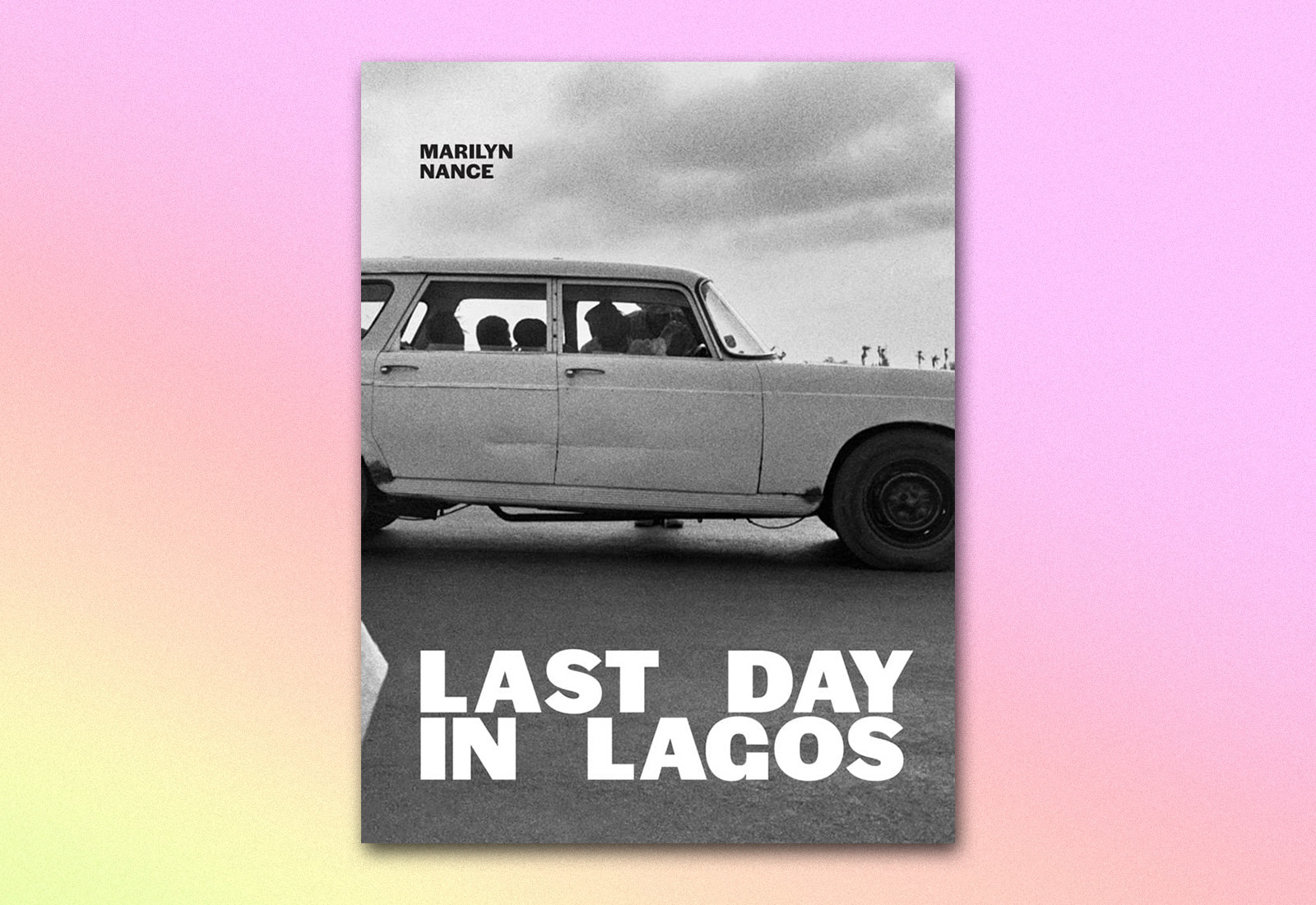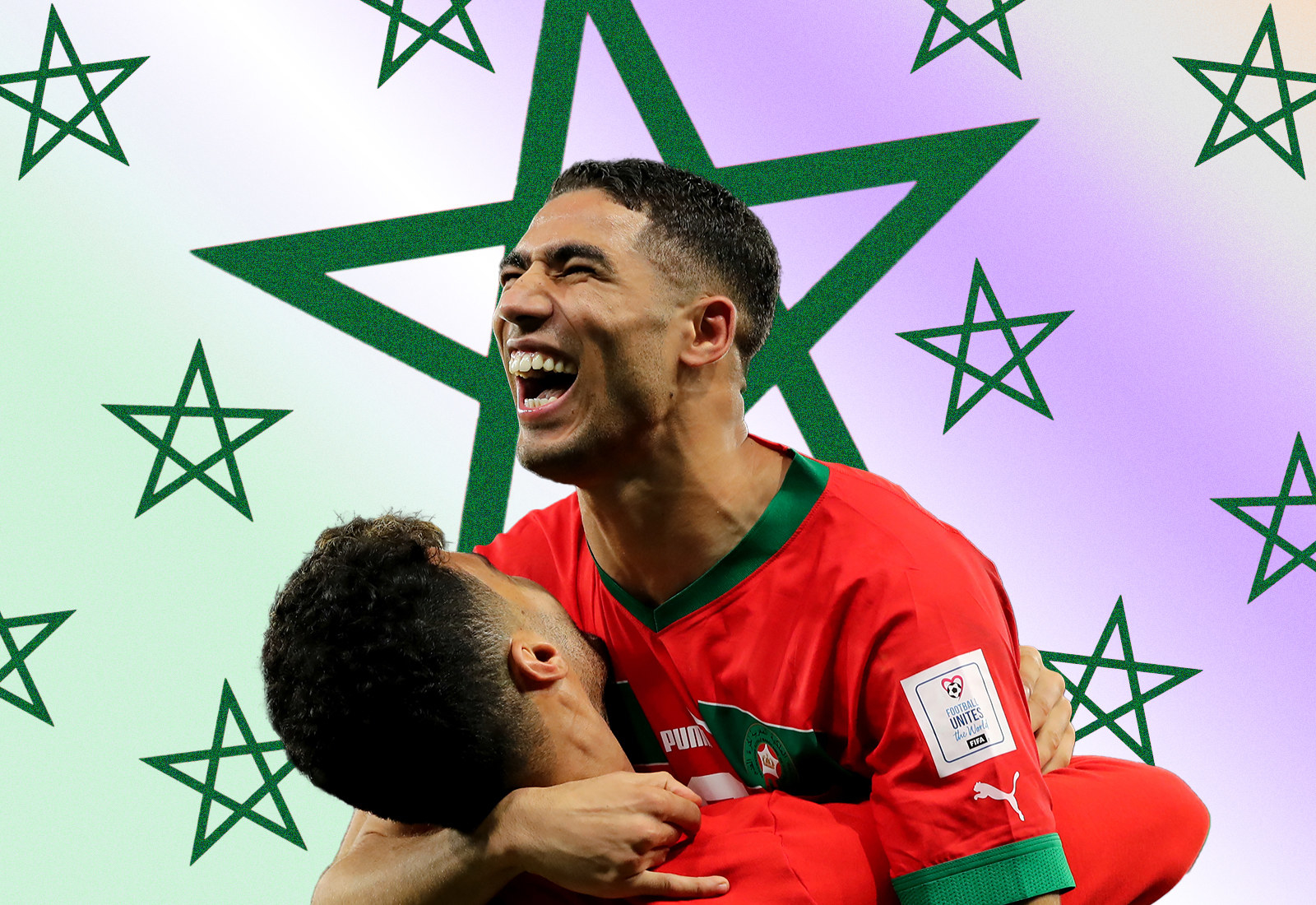Welcome to the latest edition of BuzzFeed News' culture newsletter, Cleanse the Timeline! You can subscribe here.

Hello,
Some sad news! This edition of Cleanse the Timeline contains the final installment of Elamin Abdelmahmoud’s Cause and Affleck column. (The only person who is not too sad is me, who doesn’t have to come up with any more headlines relating to Ben Affleck.) His fitting farewell is a moving meditation on J.Lo’s 2002 song “Dear Ben.”
In addition, Tomi Obaro’s book recommendation is a striking chronicle detailing an unprecedented 1977 gathering of Black artists and activists in Lagos, Nigeria. And Albert Samaha digs into the unique position Moroccan soccer player Achraf Hakimi’s World Cup success puts him in.
Some good news: Over at BuzzFeed News’ culture desk, we’ve started diving into our favorite stuff of the year. We’ll continue throughout the week, so come visit. Agree with us! Disagree with us! Or just say hi!
Take care,
Estelle Tang, deputy culture editor

Welcome to Read This, where we recommend something old or new to add to your ever-growing book pile.

Last Day in Lagos by Marilyn Nance
In 1977, thousands of Black artists, activists, photographers, musicians, and writers from all over the world congregated in Lagos, Nigeria, for the Second World Black and African Festival of Arts and Culture, better known as Festac ’77. Luminaries such as Audre Lorde, Fela Kuti, and Stevie Wonder all attended, and it was an unprecedented moment in the history of the Black Arts Movement.
A Brooklyn photographer named Marilyn Nance, then 22, threw her name in the ring to attend as an artist. When she was cut from the artist program, she applied again, this time as a technician, charged with documenting the event. She hopped on a plane, her first time out of the country, and photographed what she saw.
The result is this book, full of striking black-and-white photographs of the festivities held at the National Stadium in Lagos. Interspersed between images of jubilant festivalgoers, Stevie Wonder drinking with some friends, portraits of people on the street, and stills of the Sun Ra Arkestra performing are essays contextualizing that extraordinary 30-day event.
In the decades since this festival, Nigeria has fallen prey to harsh economic restrictions, growing income inequality, and corrupt government officials, which make it hard to envision the country pulling off something like this again. It makes this book all the more special — as an encapsulation of something both remarkable and truly sui generis. —Tomi Obaro

Welcome to Cause and Affleck, a column in which Elamin Abdelmahmoud thinks deeply about the most important subject in the world: Ben Affleck.

One Last Dunkin’ for the Road
It gives me no pleasure to report that the worst song on Jennifer Lopez’s 2002 album This Is Me…Then is “Dear Ben.” It’s important you know that because I am generally rooting for all things Ben Affleck, and you’d think I would be rooting for a song written in the fever dream of Bennifer 1.0, but it’s hard to get behind “Dear Ben.” It’s a song that impressively avoids making use of any of Lopez’s gifts as a vocalist. Its chorus is bland and too on the nose, with lines like “I love you, you're perfect / A manifestation of my dreams.” Oof.
In defense of J.Lo, it was 2002 and an album only needed to have one, maybe two, good songs in order to sell; she had “Jenny from the Block” and “All I Have” in the bag, and, sure, they can’t all be diamonds. Rolling Stone’s review of This Is Me said most of the album’s songs were “pitched too high for her register, the production sounds cheap, and love has dulled whatever street edge she might have had.” This scarcely mattered, though, because she actually was in love.
I was thinking about “Dear Ben” last week after Lopez announced a sequel to This Is Me…Then, appropriately titled This Is Me…Now. The album arrives early next year, and you bet your ass it boasts a song called “Dear Ben Pt. II,” plus other song titles featuring not-exactly-obscure references to the couple’s life. (The penultimate song is titled “Midnight Trip to Vegas.” Wonder what that’s about.)
It’s been 20 years since all of our judgment and the press’s hounding of Lopez and Affleck helped bring an end to an unlikely love story. Lopez seems to be communicating that this time, it’s for real and forever (reinforced by one song title on the upcoming album: “Not. Going. Anywhere.”) — and that no number of paparazzi or snickering critics who like to say annoying things like “making use of Lopez’s gifts as a vocalist” will interrupt the flow of Bennifer 2.0.
I’ve been writing this Ben Affleck column for a while now, and this is the last one. But despite having explored ideas like celebrity and masculinity here, the truth is I don’t have a sense of whether we have the right to use Affleck as an avatar for those things, or anything else. Affleck is in the rarefied class of celebrity that transcends being human and becomes symbolic. We use those celebrities to understand our culture, but perhaps in doing so we reduce their lives to our points of interaction with them.
“Dear Ben” is not any good, and I have no reason to think Pt. II will be any good either. But I’m trying to learn when it’s not my place to judge these things. I can run my mouth and say anything about Ben Affleck that I want. It’s not my opinion that matters here. —Elamin Abdelmahmoud

This is Keeping Score, where Albert Samaha dissects the juiciest dramas of the sports world.

Achraf Hakimi’s World Cup Success Is More Than Personal
On Tuesday, Achraf Hakimi scored the penalty kick that earned Morocco a World Cup win over Spain. Even for a sporting event historically fraught with geopolitical implications, this moment overflowed with meaning. Though Hakimi was born in Madrid and was recruited for Spain’s national team, he was talented enough to have a choice. He turned down the chance to play for Spain, one of the eight nations in the exclusive club of World Cup champions, and opted instead to play for his immigrant parents’ homeland, which Spain colonized from 1912 until 1956.
Across all the teams in the tournament, 137 players, or around 16% of participants, play for countries they weren’t born in. More than a third of the players on the Tunisian, Senegalese, and Cameroonian teams grew up in France; their families were part of the wave of migration from formerly colonized nations to their former occupying empires. Hakimi, the son of a house cleaner and a street vendor, is a member of perhaps the most cosmopolitan squad in the tournament. More than half of Morocco’s players were born in another country, including four from the Netherlands, three from France, and three from Germany.
After playing on Spain’s youth national team as a teenager, he realized it wasn’t “the right place” for him. “I did not feel at home,” he told the Spanish newspaper Marca. “Because it was not what I had at home, which is the Arab culture, being Moroccan.”
It’s a complicated decision to pick between the colonized country your parents left and the colonizer country you were born in, which maintains conditions that leave people who look like you struggling to catch up with your European-blooded contemporaries.
Breel Embolo, who was born in Cameroon and immigrated with his family to Switzerland when he was 5, chose to play for the Swiss team, which faced off against Cameroon two weeks ago. When Embolo scored a critical goal halfway into the game, he didn’t celebrate but instead turned to the Cameroonian fans with his hands raised in apology. His goal, the only one scored all game, ultimately helped Switzerland advance while dooming Cameroon’s chances.
Morocco now stands as the tournament’s premier underdog. In the World Cup’s 92-year history, only countries from Europe and South America have won championships. Japan and South Korea lost on Monday, eliminating the last remaining teams from Asia. Of the eight teams still in contention, Morocco is the only one from Africa.
After the win against Spain, Hakimi tweeted a photo of himself kissing the crest on his Morocco jersey, with the caption, “Ma nation.” He now represents not just that country but descendants of colonized people everywhere reckoning with their place in a world still dominated by the old empires. —Albert Samaha
Did you miss…?
25 Books From 2022 You'll Love
From historical fantasy and riveting romance to heartbreaking memoir and more — these are the books from 2022 we loved.
Netflix’s Christmas Movies Are Here. Here Are The Best Of The Worst.
Lindsay Lohan's back, baby!
The Men — And Butts — Of “The White Lotus”
Bare with me as I present to you my well-rounded argument as to why there’s so many butts on this cheeky show. (Warning: spoilers ahead!)
Some Owners Are Experiencing Guilt And Resentment About Their Pandemic Pets
With return-to-work mandates, inflating costs, and animal behavioral issues, some owners have doubts.
The Brazilian star has redefined what it means to be a woman in Latinx music. She’s a sign of how the industry has changed — and how it hasn’t.
From the new season of The White Lotus to a gritty Star Wars TV adaptation — these were the shows we loved this year.
He Gave Her Diamond Earrings And She Freaked Out. Here's How Gift Anxiety Works.
So. Much. Pressure.
People Have Raised Serious Concerns About The AI Art App That’s All Over Your Instagram Feed
There’s a debate brewing about data, intellectual property, and identity in regard to an app that charges you $8 to turn your selfies into art.
10 Informative Books That Will Help You Understand What’s Happening In Iran
These novels, anthologies, and academic works provide helpful context for the protests happening in Iran.
Kanye Is Allegedly Sharing Explicit Images Of Kim Kardashian Without Consent
There’s been a long-standing battle between Kim’s exes — Ray J and Kanye West — over who owns her sexual image. The reality is no one but Kim does, and yet we’re all still fighting over it.
The US Men's Soccer Team Beat Iran, But Iranian Players Deserve All The Credit
At a World Cup defined by suppression of dissent, Iran’s players have risked the most to call out injustice. ●



